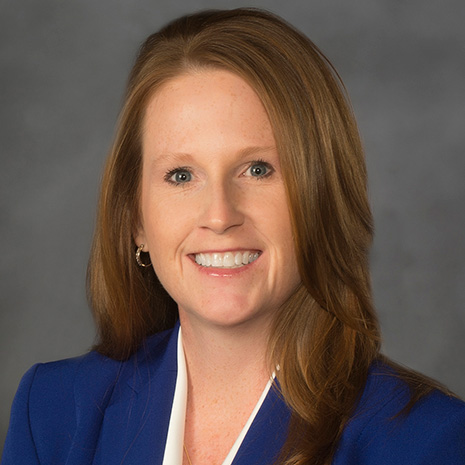Wilder School Spotlight
Meet Jill Gordon

By Tiffany Murray-Robertson
When Jill Gordon, Ph.D., thinks about what it means to be an administrator at Virginia Commonwealth University, three things come to mind: providing opportunities for high-impact learning and curriculum delivery, supporting the growth and advancement of faculty and leveraging the talents and perspectives of its diverse community.
As the Wilder School’s new associate dean for faculty and academic affairs, Gordon is responsible for the coordination of the school’s efforts in all three areas.
“I am privileged to be a voice for the faculty, and to work closely with Dean Verma and others to strengthen the Wilder School’s intellectual stamp on the university and to enhance our curricular offerings,” said Gordon, adding that the “the productivity and collegiality” of Wilder faculty make this “an immensely rewarding job.”
In her new position, Gordon oversees a range of activities that support teaching, professional development, promotion and tenure processes, faculty and student awards. Her management of academic affairs encompasses all aspects of the school’s learning programs, including degree, certificate and experiential components.
A veteran faculty member, Gordon joined the university as an assistant professor of criminal justice in 1996. She served most recently as the chair of her home unit, which boasts the largest academic program in the school and the fourth largest undergraduate major within the university. Before arriving at VCU, she earned a bachelor’s degree from Bowling State University in criminal justice and master’s and doctoral degrees in criminal justice from the University of Cincinnati.
When she’s not stewarding the school’s academic enterprise, Gordon is a distinguished teacher and scholar whose research interests cover a range of issues in corrections. These include evaluative studies of correctional policy, corrections climate and culture issues. Her most recent work is an unprecedented analysis of inmates and correctional officers in five Virginia prisons and examines attitudes towards culture, fear and risk perceptions.
Gordon is passionate about the role of corrections officers, whom she describes as lesser known public servants who play a vital part in the institutional experiences of offenders.
“Because corrections officers work behind the walls, their work is often unnoticed and undervalued by the public. It’s a very difficult job, performed in the most challenging of environments. Despite that, not much is known about this sector of law enforcement,” she said.
Gordon’s inquiries on corrections sub-cultures, coping strategies, protective measures and officer interactions and perceptions towards offenders is an attempt to even that score.
“I do what I do because positive interactions between officers and offenders are imperative to ensuring the efficacy of correctional rehabilitation programs and the successful reintegration of prisoners after release. These are difference-makers within our communities. Understanding and evaluating the factors that make correctional environments successful, is something that impacts everyone,” Gordon said.
It was the pursuit of fairness and the desire to help others that led Gordon to criminal justice and ultimately toward administration.
The youngest of two children, Gordon grew up in Parma, Ohio, a suburb of Cleveland. The first to go to college, raised in a family setting comprised almost entirely of tradesmen, Gordon had intended to study physical therapy before a chance course in criminal justice offered insight on a very different helping profession.
“Criminal Justice just spoke to me. It dealt with the concept of unfairness, why systems do or don’t work for people and the choices that they make. For me, the field of corrections became a bridge — a way to assist individuals, regain connections to appropriate services and tie them to new opportunities,” said Gordon.
It’s idealistic, acknowledged Gordon, but her work as an administrator is guided by the very same values.
“My platform?” she quipped in pre-election humor.
“A desire to promote growth in others and help them reach their greatest potential. Respect for individuals regardless of rank, role or title. A strong belief that each of us has a unique and valuable contribution to make,” smiled Gordon.
“These are the values that informed my work as a scholar and will guide me as associate dean.”
It’s early yet, but we look forward to her term.